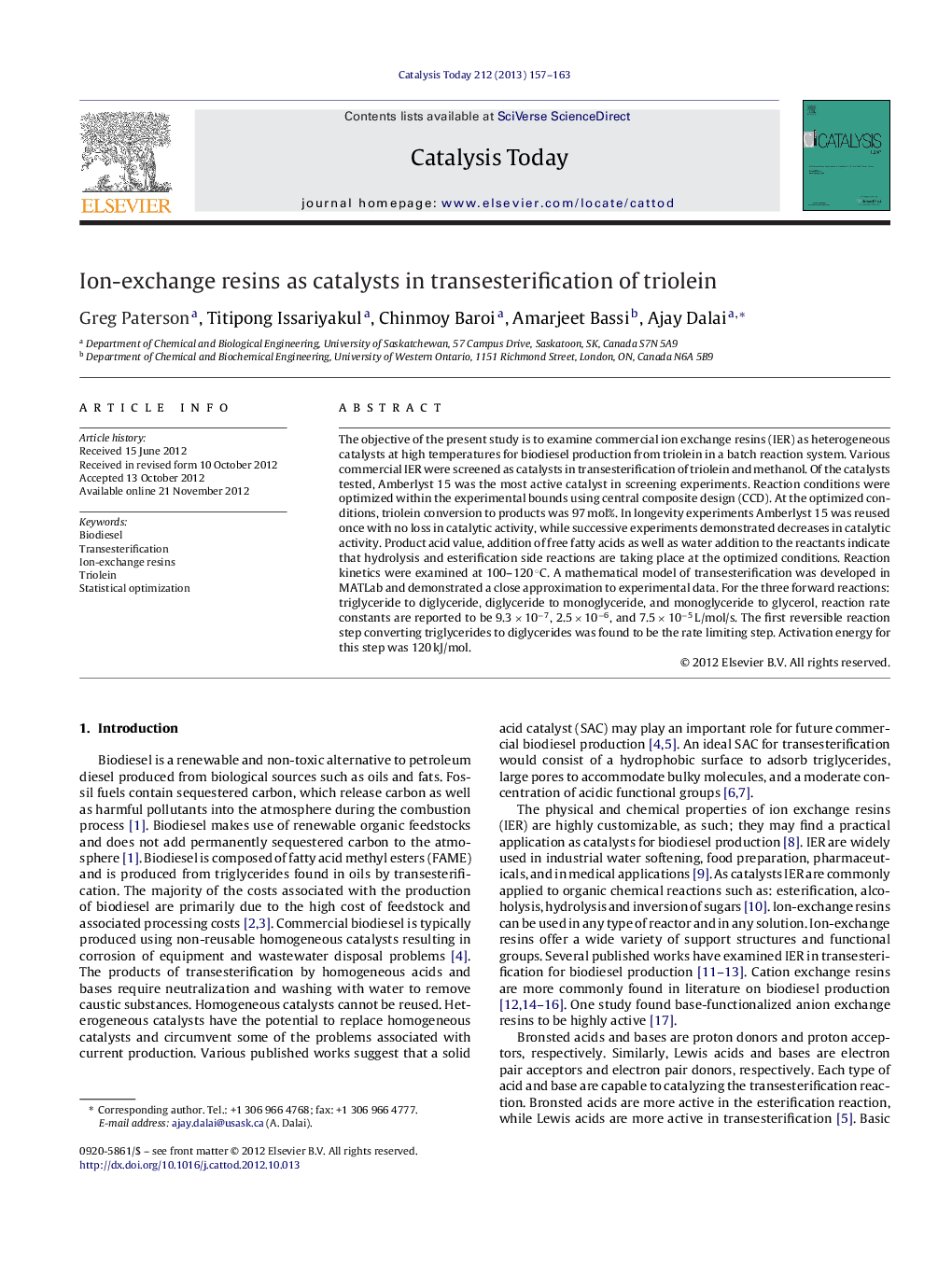| کد مقاله | کد نشریه | سال انتشار | مقاله انگلیسی | نسخه تمام متن |
|---|---|---|---|---|
| 54820 | 47027 | 2013 | 7 صفحه PDF | دانلود رایگان |

The objective of the present study is to examine commercial ion exchange resins (IER) as heterogeneous catalysts at high temperatures for biodiesel production from triolein in a batch reaction system. Various commercial IER were screened as catalysts in transesterification of triolein and methanol. Of the catalysts tested, Amberlyst 15 was the most active catalyst in screening experiments. Reaction conditions were optimized within the experimental bounds using central composite design (CCD). At the optimized conditions, triolein conversion to products was 97 mol%. In longevity experiments Amberlyst 15 was reused once with no loss in catalytic activity, while successive experiments demonstrated decreases in catalytic activity. Product acid value, addition of free fatty acids as well as water addition to the reactants indicate that hydrolysis and esterification side reactions are taking place at the optimized conditions. Reaction kinetics were examined at 100–120 °C. A mathematical model of transesterification was developed in MATLab and demonstrated a close approximation to experimental data. For the three forward reactions: triglyceride to diglyceride, diglyceride to monoglyceride, and monoglyceride to glycerol, reaction rate constants are reported to be 9.3 × 10−7, 2.5 × 10−6, and 7.5 × 10−5 L/mol/s. The first reversible reaction step converting triglycerides to diglycerides was found to be the rate limiting step. Activation energy for this step was 120 kJ/mol.
Figure optionsDownload high-quality image (111 K)Download as PowerPoint slideHighlights
► Use of ion-exchange resins as heterogeneous catalysts in biodiesel production.
► Examination of ion-exchange resins at temperatures above the boiling point of methanol.
► Statistical optimization of reaction conditions maximizing conversion to products.
► Catalyst reusable, tolerant to water and free fatty acid content in feedstock.
► Kinetics model developed in MATLab approximates transesterification reactions.
Journal: Catalysis Today - Volume 212, 1 September 2013, Pages 157–163